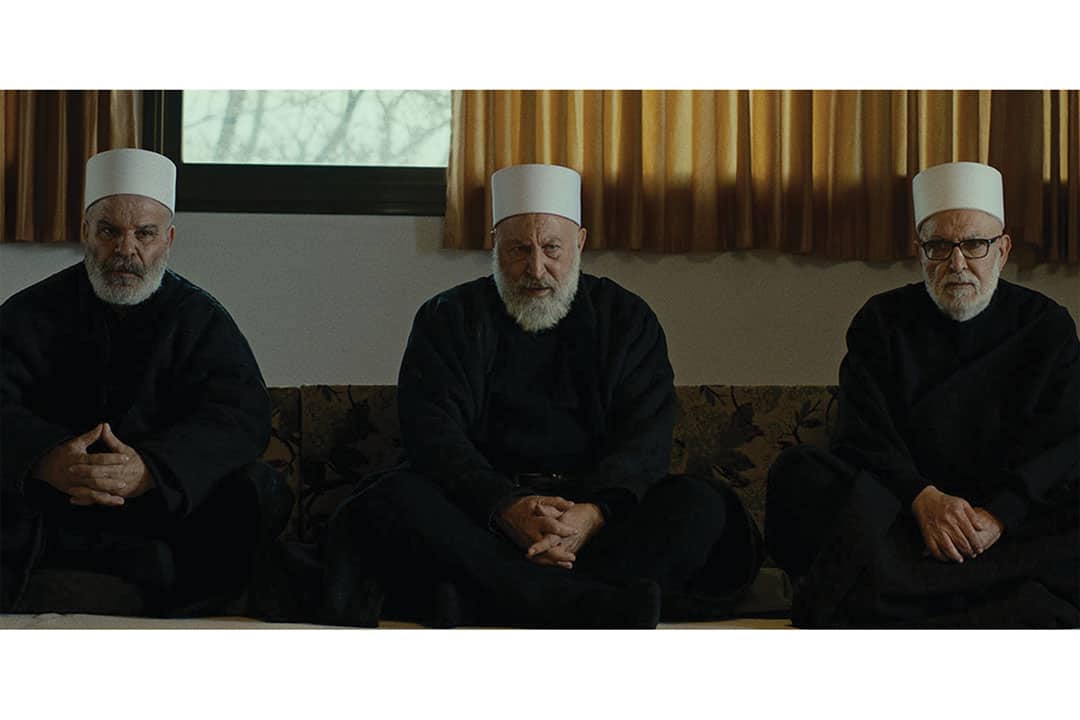Ehab Tarabieh and Sol Goodman build an immersive and jarring reality in The Taste of Apples is Red, a narrative realistic fiction film. Set in Syria during the country’s civil war, the writers draw inspiration from their homeland to create a personal and powerful story around the realities for people living in the war-torn Syria. Tarabieh’s history as a documentary filmmaker is apparent in the style of this film, yet those elements are smoothly incorporated into this debut fictional film for Tarabeih.
The Taste of Apples is Red tells the story of a sheikh leader living in the Israeli-occupied Golan Heights. The main character, Sheikh Kamel, is a well-respected and devout member of the local Druze community, as well as a Syrian patriot. However, his faith and patriotism are challenged when his long-exiled brother, Mustafa, suddenly arrives on his doorstep one night, injured and alone as an enemy of the Assad army.
Kamel and his daughter Salma reluctantly care for Mustafa, but word of his refuge in Kamel’s home spreads fast and the sheikh soon loses the respect of his community due to his hypocritical sentiments and behaviour toward a traitor. He is given the choice to either give up his brother or lose his social status for potentially attracting the Assad army’s unwanted attention.
The sheikh deals with inner conflict and faces the choice between his community and his family with high stakes from military pressure. This impossible decision between community and something potentially more significant is similarly captured in Sophie Jarvis’s Until Branches Bend, also premiering at TIFF — another great movie to check out!
Tarabeih uses many elements of fictional narratives to produce a meaningful film, but he simultaneously integrates his documentary style to add a level of realism. The strong emphasis on the violence of a civil war is one such example of how the film focuses on realism.
Although much of the film is not graphic, many of the characters paint vivid images of the cruel horrors of the battlefield through visceral personal anecdotes. Despite the clear mystical element brought in through religion, war is first and foremost an undeniable part of the villagers’ everyday experience.
Animals also play an important role in this movie as symbolic doctrinal actors enforcing the laws of the Druze’s mysterious tenets. Great importance is placed on the strict laws of the Druze faith, but besides the animal symbolism and the moral principle of exiling traitors, not much about the mysterious religion is revealed.
The film’s purpose is not to expose the inner workings of the Druze faith but to portray the small community in which this story takes place. It’s a community in which there is a crucial need to follow the laws of the faith. Ultimately, The Taste of Apples is Red is about the tension between faith and blood, which we watch play out to a bitter-sweet ending.


